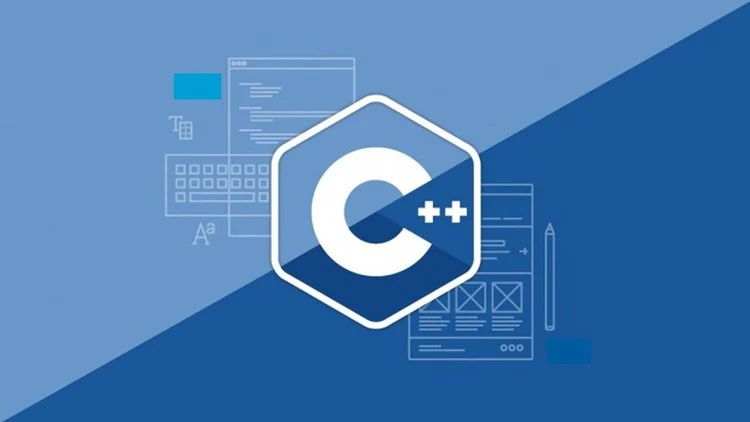C++ is one of the most influential programming languages ever created, known for introducing the powerful concept of Object Oriented Programming (OOP). OOP revolutionized how we write, structure, and maintain code by focusing on objects instead of just functions and logic. If you want to build scalable, efficient, and reusable software, understanding OOP in C++ is essential.
Table of Contents
What is Object-Oriented Programming (OOP)?
Object Oriented Programming is a programming paradigm that organizes code into objects real-world entities that have attributes (data) and behaviors (functions). Instead of thinking in terms of tasks or actions, Object Oriented Programming allows you to think in terms of things such as a Car, Student, or BankAccount.
Each object combines data and functions into one logical unit, making code easier to understand, reuse, and debug.
C++ was among the first languages to support OOP, setting the foundation for modern languages like Java, C#, and Python.
The Four Main Pillars of OOP in C++
There are four core principles that define Object Oriented Programming:
1. Encapsulation
Encapsulation is the concept of bundling data and methods that operate on that data within a single unit, or class. It helps protect data from outside interference.
Example:
#include <iostream>
using namespace std;
class BankAccount {
private:
double balance; // private data
public:
void deposit(double amount) {
balance += amount;
}
void withdraw(double amount) {
if (amount <= balance)
balance -= amount;
else
cout << "Insufficient balance" << endl;
}
double getBalance() {
return balance;
}
};
Here, balance is private, meaning it cannot be accessed directly from outside the class ensuring data safety.
2. Inheritance
Inheritance allows one class to acquire the properties and behavior of another class. This encourages code reusability and establishes a parent-child relationship.
Example:
class Vehicle {
public:
void start() {
cout << "Vehicle starting..." << endl;
}
};
class Car : public Vehicle {
public:
void accelerate() {
cout << "Car accelerating..." << endl;
}
};
Here, Car inherits from Vehicle, gaining access to its start() function. This prevents repetitive code and promotes hierarchy.
3. Polymorphism
Polymorphism means “many forms.” It allows the same function to behave differently depending on the object that calls it.
Example:
class Shape {
public:
virtual void draw() {
cout << "Drawing a shape" << endl;
}
};
class Circle : public Shape {
public:
void draw() override {
cout << "Drawing a circle" << endl;
}
};
class Square : public Shape {
public:
void draw() override {
cout << "Drawing a square" << endl;
}
};
int main() {
Shape* s1 = new Circle();
Shape* s2 = new Square();
s1->draw();
s2->draw();
}
Output:
Drawing a circle
Drawing a square
This is runtime polymorphism, achieved through virtual functions in C++.
4. Abstraction
Abstraction hides complex implementation details and exposes only essential features. It helps you focus on what an object does instead of how it does it.
Example:
class Database {
public:
virtual void connect() = 0; // pure virtual function
};
class MySQL : public Database {
public:
void connect() override {
cout << "Connected to MySQL database" << endl;
}
};
Here, the Database class provides an abstract blueprint that other classes like MySQL can implement in their own way.
Benefits of OOP in C++
Object Oriented Programming offers several real-world benefits:
- Modularity: Each object acts as a self-contained unit.
- Reusability: Classes and functions can be reused in multiple programs.
- Maintainability: Changes in one part of the program don’t affect others.
- Scalability: Ideal for large and complex software systems.
- Security: Data encapsulation prevents unauthorized access.
Real-World Applications of OOP in C++
C++ and Object Oriented Programming are used to develop performance-critical applications in various domains:
- Game Development: Game engines like Unreal Engine use Object Oriented Programming to manage game objects such as characters and vehicles.
- GUI Applications: Frameworks like Qt are built around Object Oriented Programming principles.
- Operating Systems: Many system components use classes for process and memory management.
- Financial Systems: Object Oriented Programming helps model entities like accounts, transactions, and users efficiently.
Common Mistakes to Avoid in OOP
- Overusing Inheritance: Not every relationship should be “is-a.” Sometimes composition (“has-a”) is better.
- Poor Encapsulation: Exposing too many public members defeats OOP’s purpose.
- Ignoring Constructors and Destructors: Always initialize and clean up resources properly.
- Forgetting Virtual Destructors: Use
virtual ~ClassName()in base classes to avoid memory leaks when deleting derived objects.
Best Resources to Learn OOP in C++
If you want to master OOP concepts deeply, explore:
- LearnCPP.com – Beginner to advanced C++ tutorials.
- GeeksforGeeks OOP in C++ – Practical examples and interview questions.
- Cplusplus.com – Official reference for classes and objects.
Final Thoughts
OOP is the foundation of modern software design, and C++ remains one of the best languages to learn it. It encourages a structured way of thinking about problems, mirroring how real-world systems work.
By mastering encapsulation, inheritance, polymorphism, and abstraction, you’ll not only become a strong C++ developer but also gain skills that apply to every major language from Java to Python.
Also Check Machine Learning in Python – Complete Beginner’s Guide 2025


1 thought on “Object Oriented Programming in C++: Complete Guide – 2025”